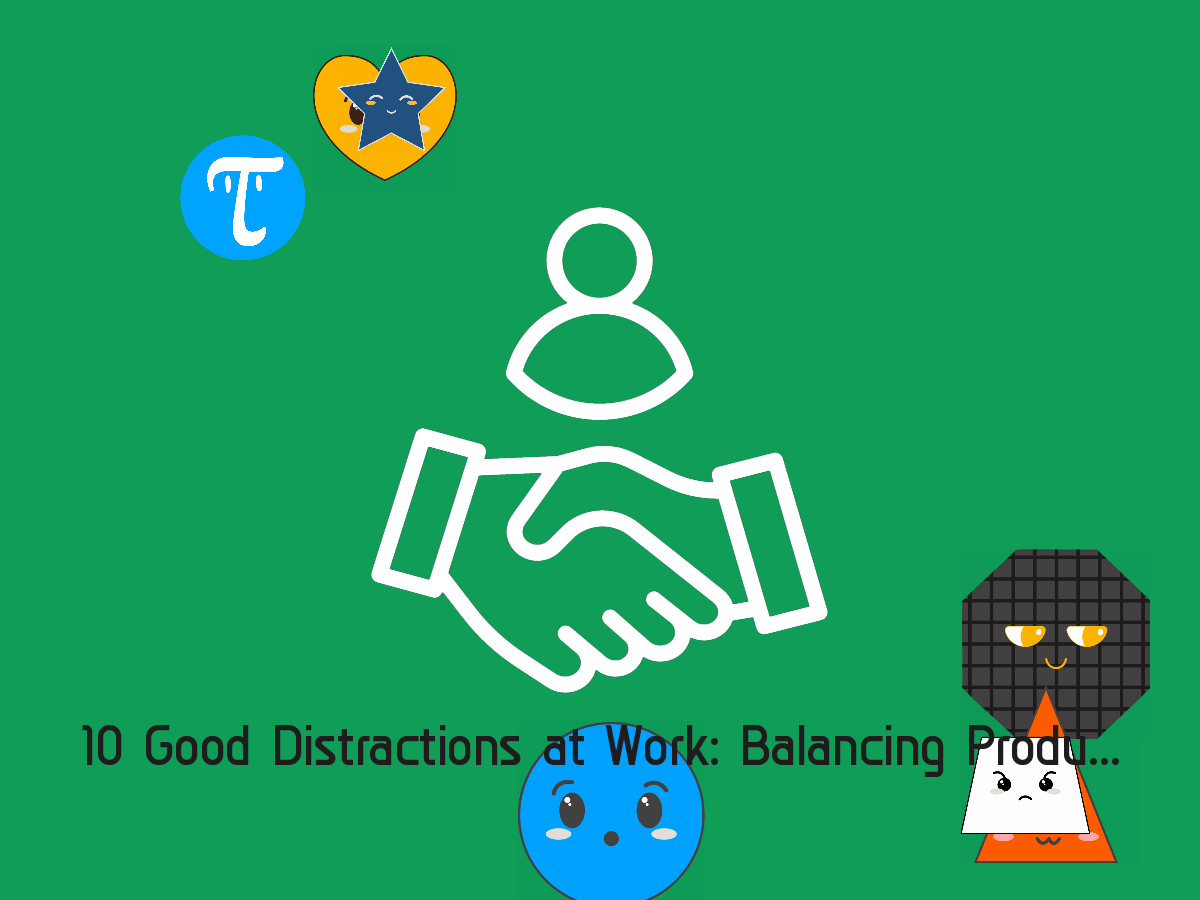Often, we view distractions in the workplace as hindrances to productivity. However, not all distractions are created equal. In fact, some can be beneficial, offering a much-needed break for our minds and enhancing our overall productivity. Let’s explore 10 good distractions at work that can actually boost your efficiency and morale.
1. Mini Mindfulness Exercises
Taking a few minutes for deep breathing or a short meditation session can reset your mental state, reducing stress and increasing focus.
2. Desk Yoga or Stretching
Physical movement, even something as simple as stretching at your desk, can relieve tension and improve blood flow, sharpening your concentration when you return to work.
3. Short Walks
A brief walk, whether it’s around the office or outside, can provide a change of scenery, fresh air, and a burst of energy.
4. Social Interactions
Having a quick chat with a colleague can be more than just socializing. It can foster collaboration, spark new ideas, and break the monotony of a routine.
5. Creative Breaks
Engaging in a creative activity like doodling, coloring, or solving a puzzle can stimulate your brain in different ways, boosting creativity and problem-solving skills.
6. Listening to Music or a Podcast
Tuning into your favorite music or an interesting podcast for a short while can be a great mental refresh, especially if your work is repetitive or requires intense focus.
7. Reading Something Unrelated to Work
Taking a brief period to read something non-work related, be it a chapter of a book or an article, can provide a mental escape and reduce stress.
8. Nature Interaction
If you have a plant at your desk or a window with a view, taking a moment to connect with nature can be immensely calming and rejuvenating.
9. Pet Time
For those in pet-friendly workplaces, spending a few minutes with a furry friend can lower stress levels and bring joy.
10. Mindful Snacking
Instead of mindlessly munching at your desk, take a short break to savor a healthy snack. This not only satisfies hunger but also offers a mental pause.
Embracing Positive Distractions
These “good distractions” are about finding balance. They shouldn’t derail your entire day but instead serve as brief intermissions that refresh your mind and body. By incorporating these into your daily routine, you can maintain high levels of productivity while also taking care of your mental and physical well-being.
Remember, productivity isn't just about constantly working; it's about working smart. And sometimes, working smart means allowing yourself the right kind of distractions.





